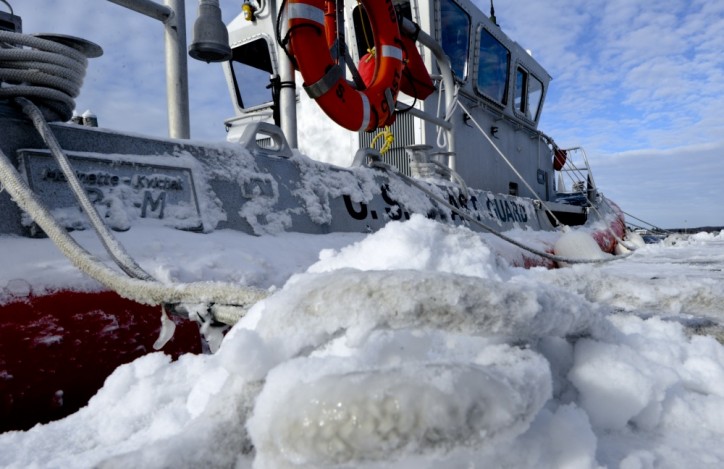As cold weather approaches, the U.S. Coast Guard recommends taking the proper actions to winterize your vessel.
Even if you are in a region that is more temperate, winterizing your boat is important, and fall is the perfect time to take the proper steps.
Winterizing is important not only to ensure the safety of your vessel but also to safeguard the maritime environment.

The Coast Guard often responds to cases of vessels sinking due to heavy snowfall or oil in the water at a marina due to poor winterization.
Below are a few items to consider in preparing your boat for colder temperatures, heavy snowfall, or long periods of not being used. While you may not be comfortable performing all of the below steps, we encourage you to contact your local Coast Guard Auxiliary unit, marina, or boat dealer for winterization help:
- Enjoy one last trip on your boat – and don’t forget your life jacket – taking note of all the things you’ve been putting off during boating season. Winter is the perfect time to complete your “to-do” list of repairs, replacements or modifications on your boat.
- Remove all the gear that has accumulated over boating season and take it home or place it in storage. Don’t forget to take home your fire extinguishers and have them inspected over the winter! Be sure to drain your fresh water tanks, fittings or lines, or fill them with non-toxic antifreeze. Pump out any holding tanks and don’t forget about icemakers, air conditioning systems, fish wells, and bilge pumps.
- With all the non-essentials removed from your boat, you’ll have room to clean. Be mindful of the chemicals you are using and recycle or properly dispose waste from cleaning. For any questions on your engine, cooling or fuel systems, consult with the manufacturer’s recommendations.
- After you haul your boat out of the water, check the boat’s shaft, strut, cutlass bearing, and propellers. Clean and disconnect the batteries. Finally, put on any covers or have the boat shrink wrapped.
- As with all boating tips, check your owner’s manuals for any special recommendations or concerns.
Source: USCG